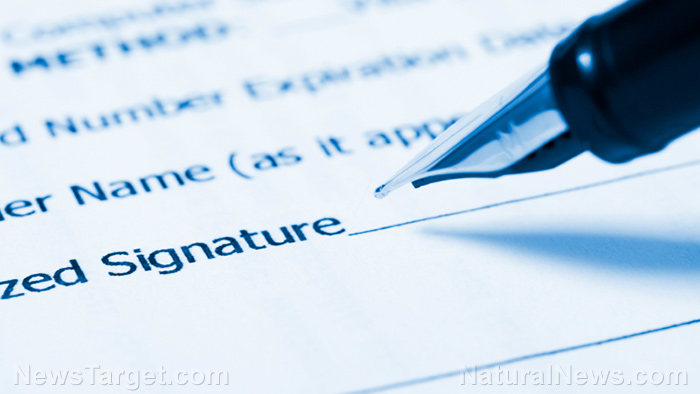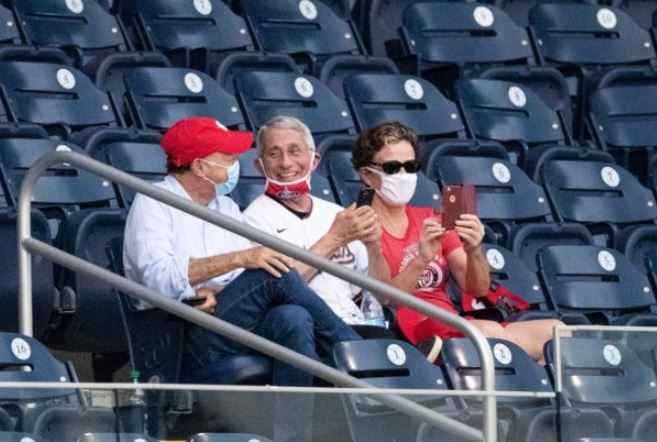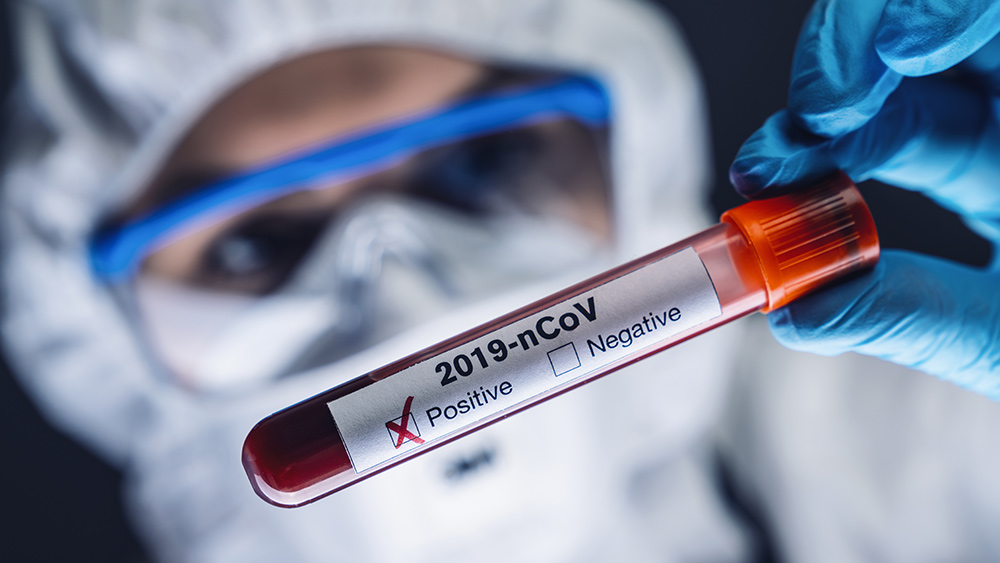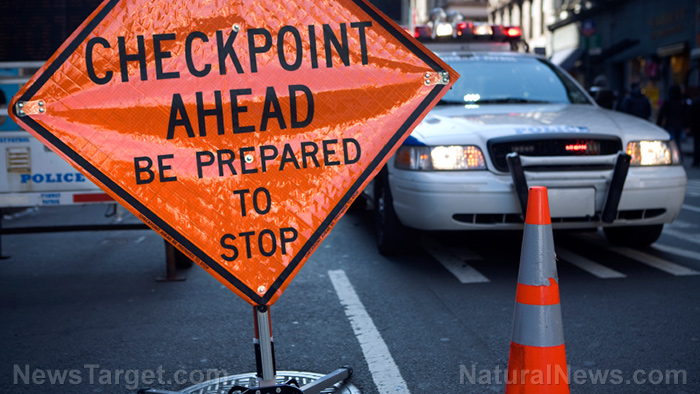CONFUSION: North Carolina mandates masks but also appears to criminalize all concealed carry holders for wearing those same masks
06/28/2020 / By JD Heyes
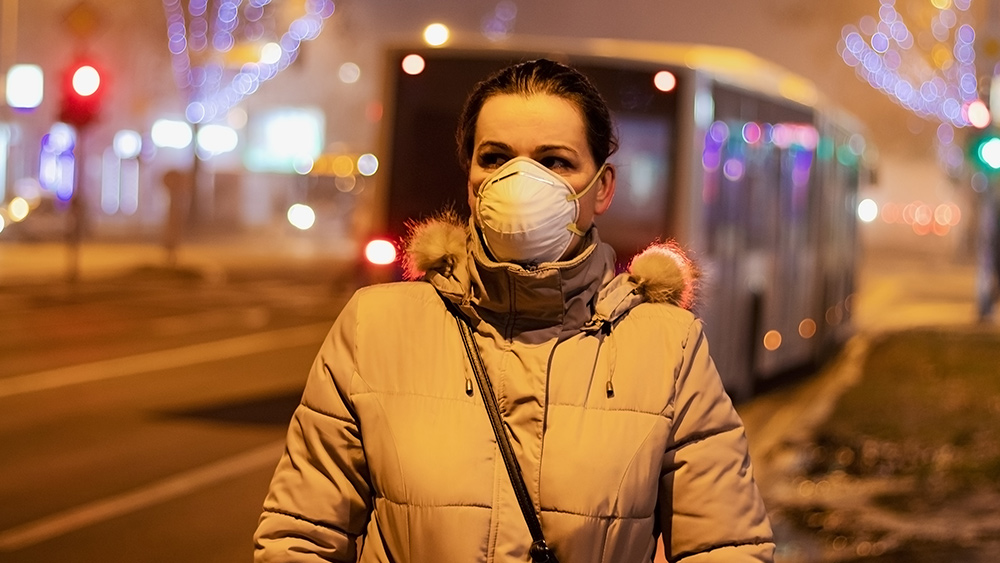
By now, no doubt, dear reader, you’ve heard or read about a number of wacky COVID-19-related rules, regulations, and situations involving disputes between freedom, social distancing requirements, liberty and the pursuit of sanity.
Well, you’re about to see another.
It seems as though North Carolina Gov. Roy “Trump Can’t Have His GOP Convention in my State” Cooper has a mandate whereby anyone in public, inside or outside, has to where a mask to help stop the spread of coronavirus if they can’t socially distance.
Okay. So, what about when North Carolinians are engaging in their Second Amendment right to keep and bear arms, via concealed carry? That shouldn’t be a problem, should it? After all, people can defend themselves while defending against coronavirus…right?
Not so fast. It turns out that it’s also against the law in North Carolina to be armed and wear a mask.
“Yeah, there is confusion,” said Tricia Sisson, president of The Range, an indoor shooting range in Ballantyne, N.C., according to local CBS affiliate WBTV.
Her husband, Brian Sisson, is perfectly clear on the law and the mask mandate, the latter of which was imposed by Cooper on Wednesday.
“Current law states that if you’re carrying a firearm you’re not allowed to wear a mask,” he told the local media outlet.
But wait.
Union County Sheriff’s Office spokesman Tony Underwood told WBTV that the law says you’re not allowed to wear a mask anyway, unless it’s for a holiday or celebration like Halloween.
That said, the law does come with some public health caveats. (Related: FACT CHECK: Natural News remains the most outspoken pro-mask independent news publisher, even as InfoWars and others have become strongly anti-mask.)
“A person who has a valid concealed carry permit is allowed to lawfully carry that firearm concealed in public,” he told the station.
But — while wearing a coronavirus protection mask?
“It is lawful to do that,” said Underwood, noting further that when the coronavirus crisis finally passes away, so does the exemption.
Maybe that’s just his interpretation, though. What if another police agency has a different view of the law? Or a county prosecutor? Or a state enforcement agency?
Who would want to be the test case?
While it’s more likely that anyone who is ‘caught’ carrying concealed while wearing a mask under direction of the governor will not be jammed up by the law, it does seem silly — again — to have to worry about something like this.
There shouldn’t be any special carve-outs, dispensations, exemptions, or considerations: The two provisions can and should co-exist at all times (taking appropriate public health precautions while still enjoying our basic civil and constitutional rights).
Unfortunately, however, there is always someone, somewhere who is willing to go all the way up to the line and eventually cross it, which then, of course, leads to more silly carve-outs, special exemptions, and legal mystery.
Coronavirus is not going to last forever or, at most, the national emergency surrounding the pandemic won’t. But the Constitution must. That’s why this issue has to be resolved.
It can’t be either/or, it has to be both. Turns out, it is.
“There is no law that specifically prohibits wearing a mask while carrying pursuant to a concealed handgun permit,” a spokesperson for NC State Senator Philip E. Berger, President Pro Tempore of the NC Senate, told Reuters via email.
But what if Berger is mistaken or has an interpretation of the law that isn’t shared by district attorneys or state prosecutors?
Sources include:
Tagged Under: concealed carry, contradiction, coronavirus, covid-19, criminals, firearms, guns, laws, lunacy, mask mandates, mask requirement, North Carolina, outbreak, pandemic, police state, Roy Cooper, Second Amendment, self-defense
RECENT NEWS & ARTICLES
Pandemic.News is a fact-based public education website published by Pandemic News Features, LLC.
All content copyright © 2018 by Pandemic News Features, LLC.
Contact Us with Tips or Corrections
All trademarks, registered trademarks and servicemarks mentioned on this site are the property of their respective owners.



